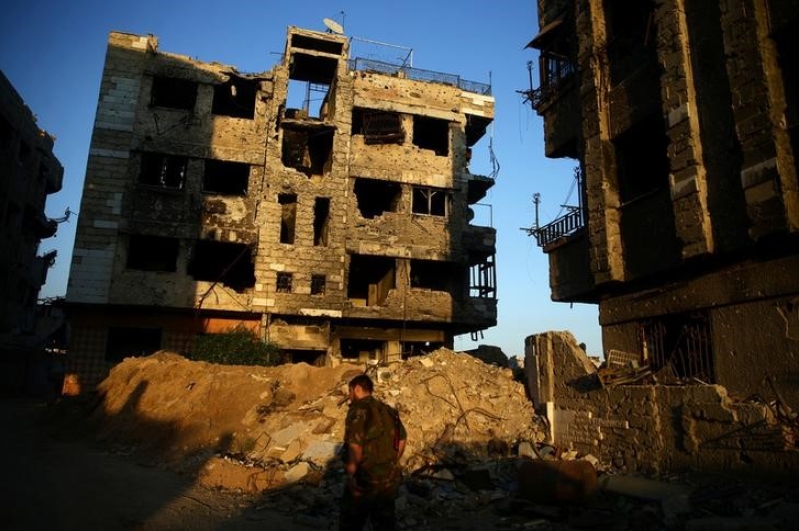
Fighting broke out between government troops and rebels in several Syrian cities on Sunday, drawing attention to the ceasefire that has been agreed on. However, according to the Free Syrian Army revolutionaries, they will observe such agreement but have expressed their doubts over such occurrence.
In a letter from the rebel groups to the United States on Sunday regarding their arrangement with Russia, these insurgents will “cooperate positively” in carrying out the ceasefire, although they felt that it would bring on more benefits for the government than promised.
While their message did not directly say the rebels would follow the ceasefire, two members sent a text to news site Reuters and confirmed that they will abide by the agreement when it is put into effect on Monday evening.
In addition, the letter states how the rebel groups are concerned over the current lack of presence of enforcement mechanisms as well as insufficient provision for affected areas.
Ahrar al-Sham, an Islamist rebel group, already released its statement on the ceasefire deal; while it sent a message of disapproval and reproach about the upcoming agreement, it stopped abruptly to avoid announcing a direct statement saying the group would not follow ceasefire terms.
Meanwhile, airstrikes from Russia and the government directly impacted the Syrian city of Idlib in which a marketplace bombing killed 91 people, according to reports by medical teams and monitoring groups.
With no control over the air, rebel groups also launched attacks using mortar shells on government-held locations, such as Damascus, Aleppo, Hama and Dara’a.
Syria’s civil war over the past five years has brought deaths to hundreds of thousands of victims and has put 11 million citizens out of place, resulting to a refugee crisis in both the Middle East and Europe. International jihadist attacks have also been attributed to such circumstances.
Highlighting the war’s universal impact, President Bashar al-Assad is supported by Russia's air force, Iran's Revolutionary Guards as well as Iraq and Lebanon’s Shi'ite military forces. Meanwhile, the United States, Turkey and Gulf Arab states are known offer support to the rebels.
Peace agreements in the past gradually disintegrated after the United States made accusations of Assad and his supporters launching attacks on opposition groups and civilians alike.
"A big part of the agreement serves the regime and doesn't apply pressure on it and doesn't serve the Syrian people," Zakaria Malahifji, a member of rebel group Fastaqim in Aleppo, stated.
Such truce, however, will not be followed by the jihadist groups Islamic State or the Nusra Front, now known as the Jabhat Fateh al-Sham.
The United States already issued a warning for the rebels on Saturday, saying they would deal with "dire consequences" if they were found to be involved with the Jabhet Fateh al-Sham, which fought Islamist rebel groups during the past weeks in southern Aleppo.
The Syrian government has not released an official statement about the ceasefire, but Syrian state media reported what it referred to as private sources who said that the government had already approved the deal on Saturday. Iran announced its approval of the ceasefire on Sunday.






